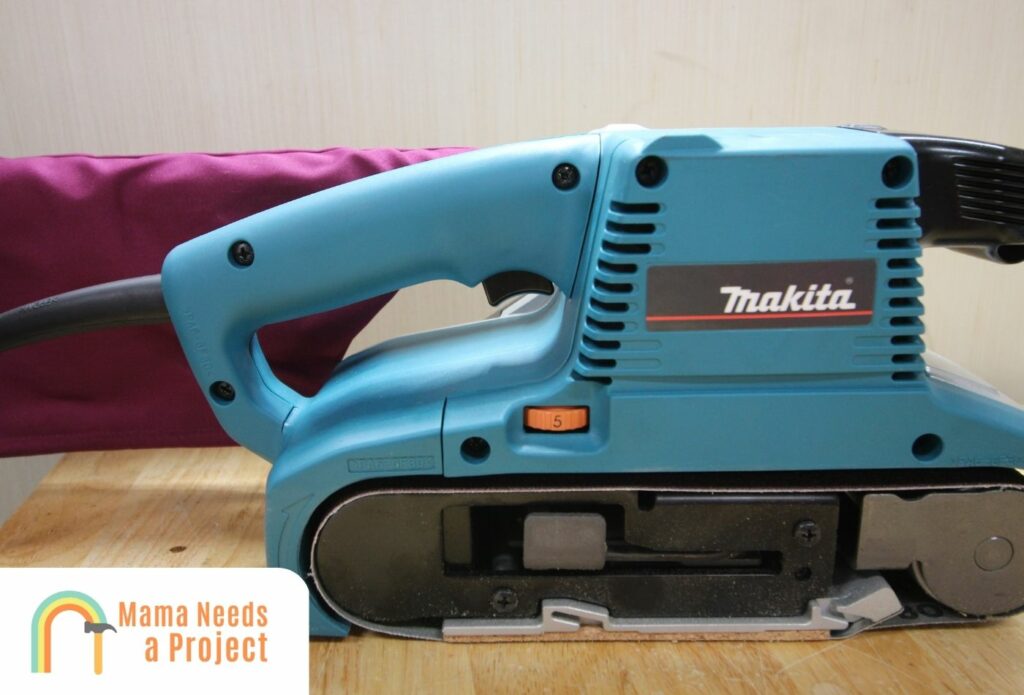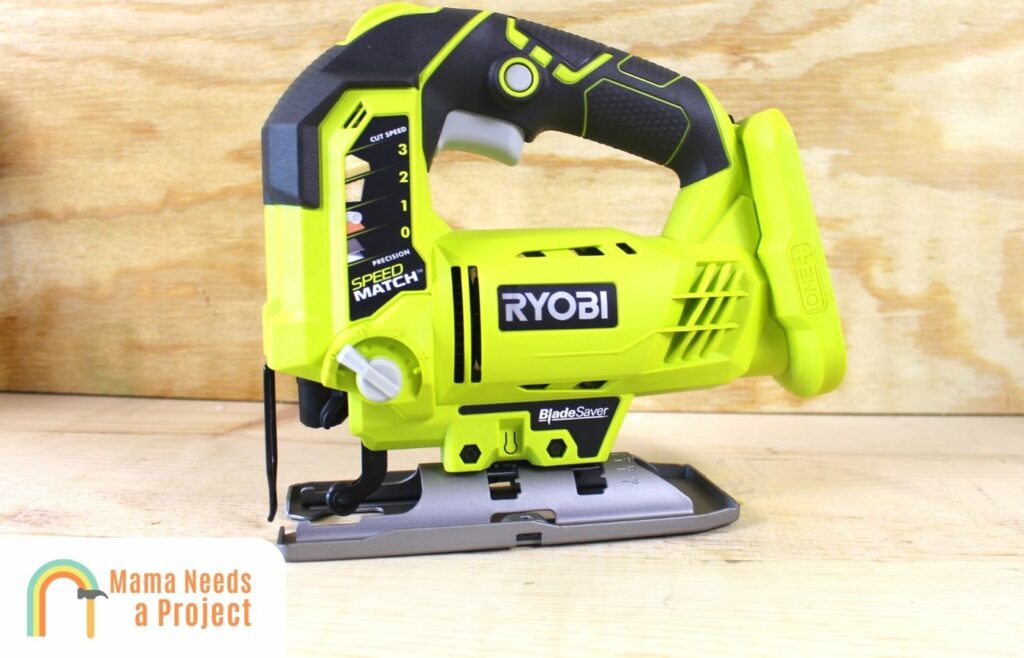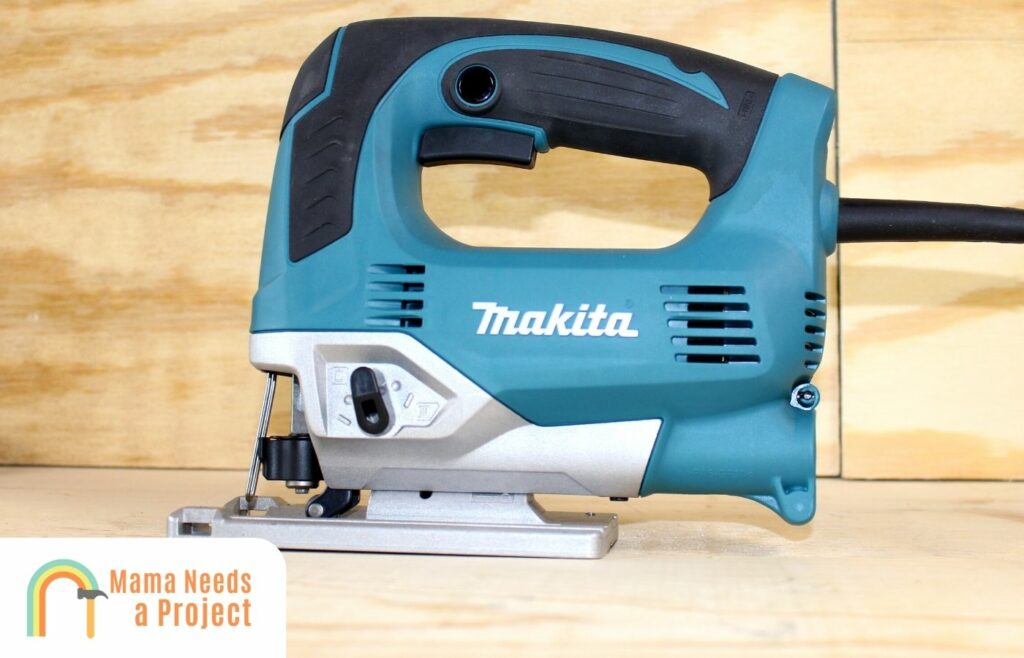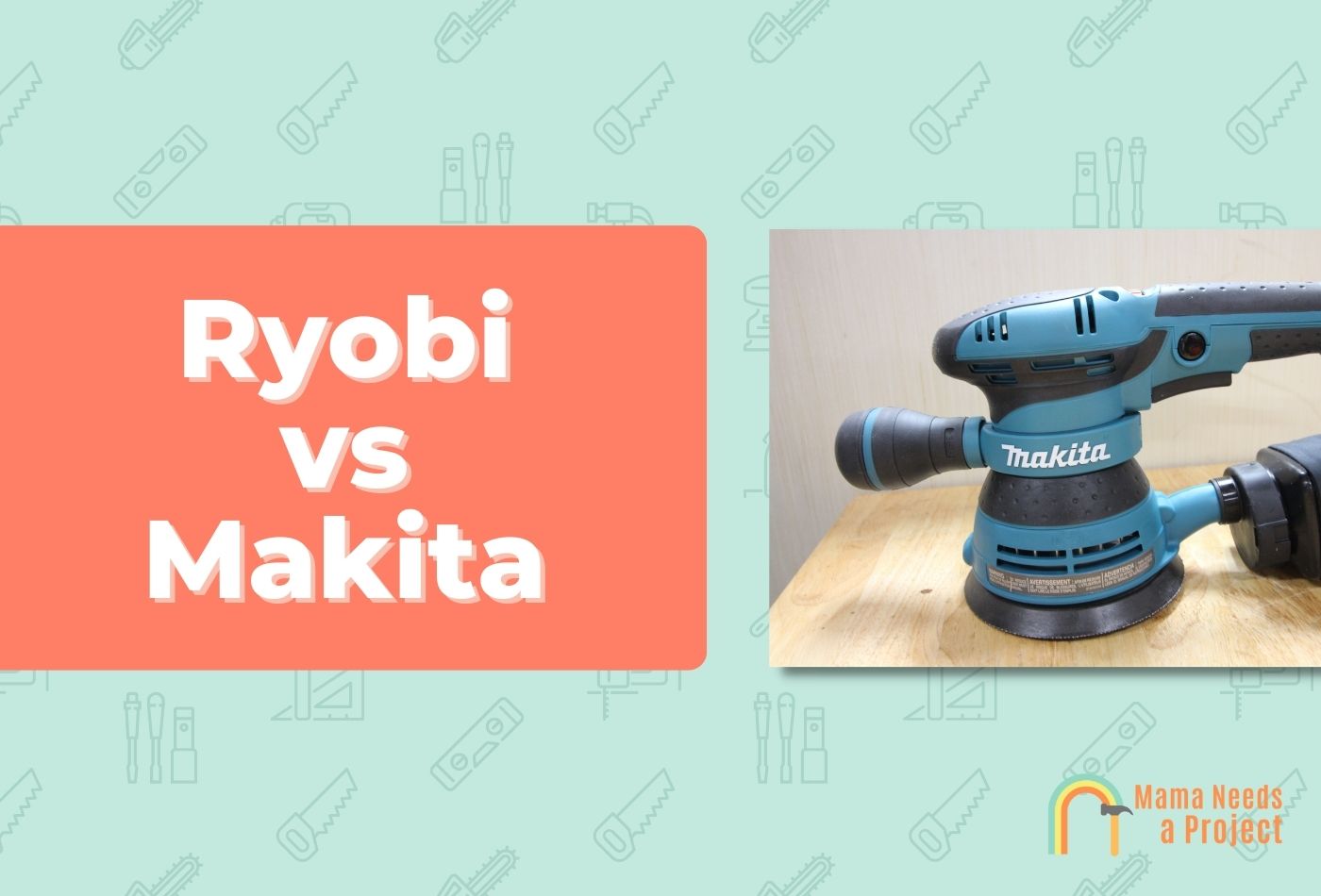Ryobi vs Makita: Which is the Better Tool Brand?
If you walk into any big box, home improvement, or hardware store these days and you are likely to find an array of choices on power tools available. Sometimes, the row of options seems endless, and choosing the right tool for your purpose can be a daunting task. Whether you are a home hobbyist, do-it-yourselfer, woodworker, or a professional tradesperson, I’m sure you’ve heard of both Ryobi and Makita. However, technology and products change quickly these days, and the differences may not be as obvious as they once were.
Ryobi, initially known as an entry level brand, is now a viable asset in anyone’s toolbox, regardless of skill level or intended use, but does Makita still have the edge despite Ryobi’s positive reputation?
In this Ryobi vs Makita comparison I’ll tackle all of the info you should know about both of these popular power tool brands. Let’s dig in!
Ultimately, Makita tools can be much more expensive, but they extremely high quality, durable, and long lasting. When compared to Ryobi tools, Makita are going to produce more power but they come with a higher price tag. If you use your tools often, go with Makita. If you don’t need the best of the best, Ryobi is a solid choice that’ll get the job done.
Makita vs Ryobi: Quality & Reliability

For many years, Makita has been associated with long-lasting and top tier quality in the cordless power tool space. That hasn’t changed in recent years and Makita’s standards do not seem to be wavering in light of increased competition in the industry.
Deeply seated in the “top 3” (along with DeWalt and Milwaukee) and many times ranked over all others by professionals that regularly abuse their tools, Makita is the premium option on the market when it comes to quality manufacturing and long term reliability in cordless power tools.
With compact and sleek designs, Makita’s line of cordless power tools feel comfortable and professional in hand while Ryobi’s tools are still a bit larger and a bit “clunky” feeling in comparison.
As I mentioned earlier, Ryobi was once known as an entry level tool and heavily marketed toward hobbyists and home use. However, in today’s market, Ryobi is providing incredibly robust tools at affordable prices. Maybe the Ryobi brand hasn’t been around long enough to completely develop a polished reputation, but their current offerings are definitely pushing them in that direction.
With the external fit and finish on Ryobi tools being a bit lacking when compared to Makita, it tends to indicate that the internal workings of their tools are also of lower quality.
As expected, Ryobi normally trails Makita in many YouTube torture tests like this one that compares Makita vs Ryobi Impact Drivers.
Ryobi vs Makita: Product Lineup

As with any power tool manufacturer today, there are LOTS of options out there.
Both Makita and Ryobi offer an extensive lineup of both corded and cordless tools whether you’re completing DIY projects or taking your tools to the job site.
In terms of cordless tools, an impressive display of versatility definitely comes from Makita’s LXT platform touting 325 different tools available, all utilizing the same 18V slide battery system.
Having the world’s largest 18V battery compatible system available for nearly any tool tradespeople could need definitely puts you in the king’s court.
Makita’s expansive line of cordless power tools ranges from their “bread and butter” drills and impact drivers all the way to push mowers and even augers, but the company remains rooted in providing tools for the trades going as far as specialized offerings like concrete and masonry saws.
Makita offers both cordless and corded tools including circular saws, sanders, miter saws, outdoor equipment, and much more.
Ryobi does have a similar product line in their Ryobi 18V ONE+ System offering 280 different tool solutions. Many of the tools are comparable to Makita’s offerings, but there are a few isolated specialty tools like the compact cultivator and cordless table saw that Makita does not currently offer.
All of that being said, 200+ tool options gives ample opportunity that either brand is likely going to have what you need for your next project, but Makita does offer more cordless tools you can choose from.
Makita vs Ryobi: Features
While both companies offer highly efficient Lithium Ion battery technology in their cordless power tools, there are some differences when it comes to performance and battery life.
Ryobi has an additional level of “eliteness” in some of their 18V ONE+ tools. They are referred to as “HP” or High Performance.
These tools come with brushless motors and advanced electronics whereas the original line of 18V ONE+ tools are outfitted with traditional “brushed” motors. While brushless motors are more expensive, they are also more efficient, quieter, and produce more torque than traditional tool motors.
Makita’s LXT line of tools does pack a bit more punch when it comes to features as ALL of their 325 tool options are equipped with brushless motor technology. Makita has been outfitting cordless power tools with brushless motors for almost 20 years, so it’s no surprise that their entire line is now utilizing this technology. In addition to the embedded technology in Makita’s tools, their chargers also utilize a built-in fan system that enhances charging efficiency making it one of the fastest charging batteries on the market.
Makita also offers several of their larger 18V compatible tools as the LXT X2 line which combines the power of two 18V batteries maximizing available power to the tool.
Lastly, Makita offers another unique feature in its LXT line which is referred to as their Sub-Compact’s. These are geared more toward the standard tradespeople tools, but offer a smaller footprint and ergonomic feel while still delivering the same performance and power as Makita’s premium tools.
When it comes to features and functionality, Makita has Ryobi beat.
Wondering how their impact drivers stack up? Check out the video below!
Makita vs Ryobi: Price
Many times, price is the driving factor in deciding which power tool invest in.
That’s not to say that price isn’t an important factor, it should just always be considered along with value.
Premium is usually synonymous with price, but it doesn’t mean that there aren’t more economical tools that can still get the job done.
It’s not a highly concealed secret, and most everyone knows that Ryobi is at the “budget” end of the spectrum as compared to Makita power tools.
Both manufacturers offer combination tool kits that can be affordable on any budget depending on the type of work you need to complete. This is extensively where value becomes the more important topic for consideration.
While Makita is ultimately the higher priced option, your selection may depend on if you are looking for the highest quality drill and impact driver kit that will be used on a daily basis in your business, or if you are a looking for a wide range of capability in your tool kit that will only be used occasionally. You may spend the same amount of money on either option, but the value depends on your specific need.
With expandability options to cover almost every power tool situation, either company’s line of power tools can be extended over time to build your arsenal of tools on any budget.
Makita vs Ryobi: Warranty
Both Ryobi and Makita offer 3 year limited warranties on their comparative lines of 18V Lithium Ion cordless power tools.
This may sound like an area to skip over when it comes to comparison, but always remember that the fine print is important!
Ryobi’s warranty documentation specifies that the 3 year warranty only applies if the tool is used for personal, family, or household use. If Ryobi cordless power tools are used in association with any type of commercial or rental activity, the warranty period is only 30 days.
A major difference when it comes to the intended use of your newly acquired gadgets. If you are planning to use your equipment for your business, Makita does not differentiate, and warrants their tools for the full 3 years, regardless of the type of use.
In terms of warranty, Makita wins this battle!
History of Ryobi Tools
While many people may not recognize Ryobi as being a historically “old” company, it was actually founded in 1943.
The Japan-based business provided die-cast products for the automobile industry and then entered the power tool business in 1968. International growth of the company did not start until the 1980’s which also welcomed a manufacturing facility in the US.
Today, manufacturing of the Ryobi brand is licensed to Techtronic Industries. Techtronic industries started out producing the Craftsman line of cordless power tools for Sears in the 1980’s and later purchased Milwaukee Electric Tool in 2005.
Ryobi Pros
With an increasingly positive reputation, Ryobi cordless power tools are as popular as many other brands on the market today which provides confidence that their line of 18V ONE+ tools will continue to be supported for years to come.
The largest factor for Ryobi’s popularity definitely sits at the crossroads of cost, quality, and versatility. A budget friendly price tag with better than average quality and reliability followed by a plethora of tool combinations gives the brand an advantage over the rest of the market when it comes to customers looking for an arsenal of cordless power tools to use around the house.
Basically, this is a well balanced brand that’s perfect for DIYers and weekend warriors.
Ryobi Cons
Crafters, hobbyists, and do-it-yourselfers may gleam with contentment over their set of Ryobi cordless power tools, but if you are a professional tradesperson, the pleasure of a great deal on your new combo kit may be ruined after only 30 days. Any problems with your equipment may be declined for warranty if the tools are used in a commercial setting.
For most people, Ryobi’s slightly less power and battery life is not going to be a major issue when making a decision on which cordless power tool brand to go with. However, the fit, finish, and somewhat bulkier designs on the Ryobi tools could be a problem as you will likely get more enjoyment in the use of your power tools if they are comfortable to use and well made.
History of Makita Tools

Founded in 1915, Makita also originated in Japan, but started out repairing electrical equipment. Makita started manufacturing power tools in 1959 and only 10 years later introduced their first battery powered drill.
Makita has been a frontrunner in the market for many many years and continues to lead the pack on technology. With the introduction of the first Lithium Ion battery used in rechargeable power tools in 2005, they seem to be adamant at leading the industry in new technology.
Makita Pros
With the exception of price, Makita is superior in just about every category.
Quality, reliability, and warranty are probably the largest factors that drive the selection of Makita over Ryobi, but closely behind those come design and versatility.
Attractively designed tools that are comfortable to use and even purpose-built like the Sub-Compact versions drive many people to spend the extra money for the Makita brand.
Makita Cons
Unfortunately, the high price of the Makita cordless power tools can turn many potential customers away before they even consider the other factors of comparison.
You can expect to pay around 20% more for Makita tools than you would for an equivalent Ryobi tool.
Makita vs Ryobi Verdict
So which one is the best?
It’s complicated.
Are you a contractor, tradesperson, or do use your cordless power tools to make a living? Invest the money, enjoy your tools, and know that Makita has you covered for 3 years on any of their 325 tools.
Are you a hobbyist that only needs a cordless drill, but uses it often?
Maybe your budget should hold out to pick up the Makita option as well.
However, if you’re a hobbyist that does several different things and wants the greatest capability with a set of tools, Ryobi could be the best choice for you. A large number of options, reputable reliability, and great value on your dollar are definite reasons someone may choose Ryobi.
Just getting into cordless power tools and not sure what you need or how often you will use it? Start with Ryobi and then determine if you need to upgrade or continue expanding with your initial platform.
Wondering how Ryobi compares to other brands? Check out my Ryobi vs Black and Decker comparison for more info!
Final Thoughts
While Ryobi continues to improve their brand and is growing in popularity, it is still a “budget” level option when compared to Makita.
Makita makes professional grade tools and sells them at professional grade prices. If you need commercial warranty coverage, maximum power, or extensive longevity, the Makita surcharge is worth the investment.
None of that means that Ryobi hasn’t created a niche market for great tools that are directed for use by the common homeowner.
Either company makes functional and reliable tools, you just have to determine which characteristics are most important to you and make your decision based on your personal use and expectation of the equipment.

Fueled by a passion for working with his hands, Benjamin “Bear” Lyle makes a living running his home improvement business, but also has an extensive background in woodworking. Craftsmanship being one of the key components he prides himself on, his work is intricate and sometimes ornate in nature. Mixing a passion for duck hunting into his love for woodworking, he is also a highly awarded custom game call maker competing in some of the country’s most prestigious shows like the National Wild Turkey Federation (NWTF). Some of his physical work, as well as additional reading material can be found on his website www.bearkraft.com.

